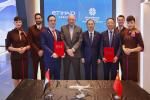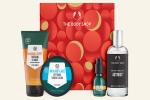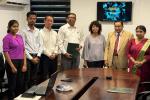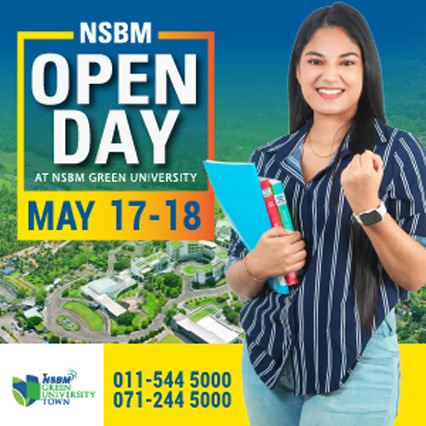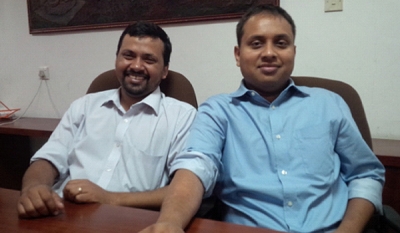When farmers sell on ‘Fair Trade’ terms, it provides them with improved and very transparent terms of trade and the opportunity to progress in life and plan for their future. For consumers, ‘Fair Trade’ is a powerful way to reduce global poverty through their everyday shopping.
With the “World Food Day” focusing on Family Farmers this year, Ma’s talks about their vision for the local farmers.
In order to be a ‘Fair Trade’ certified organization, several minimum standards including labor standards, a Minimum Price to farmers and payment of a ‘Premium’ to farmer organizations for development activities needs to be adhered to by the trader.
These measures ensure that farmers can cover their average costs of sustainable production and is the bare minimum a farmer must be paid for his produce.
It acts as a safety net for farmers at times when markets fall below a sustainable level and when the market price is higher than the ‘Minimum Price’ buyers must compete with the market to purchase the produce.
An additional ‘Premium’ from the goods sold on ‘Fair Trade’ terms goes into a communal fund for farmers and their workers which is managed by themselves to help improve their social, economic and environmental conditions.
The marginalized and disadvantaged farmers and their workers benefit the most from ‘Fair Trade’ as money goes back to the farming households through transparent channels with checks and balances to safeguard any misappropriation.
Through ‘Fair Trade’, the producers are in a better position to feed their families, educate their children, reduce debts, care for the sick, develop their community infrastructure and most importantly stabilize their livelihood.
The ‘Fair Trade’ certification is an asset to the traders as it demonstrations their commitment to fair prices and a good working environment.
Very importantly, it helps farming communities develop rather than dwindle by showing younger generations of farmers that there can be sustainable returns from farming.
As a ‘Fair Trade’ certified Trader, Ma’s with dialogue and participation of farmers agree on a fair price- one that provides fair pay to the producers and can also be sustained by the market.
“A minimum price’ is also set by the certifying body to ensure that producers are protected and can have a stable income.
The ‘Premium’ collected from products sold by Ma’s under the ‘Fair Trade’ certification are channeled back to the grass roots to improve local farming practices and the social infrastructure.
“Even a byproduct sold under the Fair Trade certification derives a 15% ‘premium’ to the farmer organization.
We want our farmers to celebrate their profession and live a positive life. For that we will keep trying our best to make sure that we never stop working towards that goal” stated Mr. Sheran de Alwis, Chief Compliance Officer, Ma’s Foods.
Ma’s has contributed to the practice of ‘Fair Trade’ in Sri Lanka by initiating the Sustainable Agri Farm Enterprise Network (SAFENET).
The network was formed when Ma’s as an organization was seeking ‘Organic’ certification.
After obtaining ‘Organic’ certification in 2005, Ma’s created awareness on the ‘Fair Trade’ certification among the SAFENET farmers and assisted them to become ‘Fair Trade’ certified farmers.
The network consists of 70 – 80 farmers and it is managed by the farmers themselves.
The ‘Fair Trade’ practices of each farmer are documented using a log book provided by Ma’s and periodically reviewed by Ma’s field officers to ensure compliance of ‘Fair Trade’ standards.
All farmers and their workers are covered by Occupational Health and Safety Insurance by Ma’s.
This was the first time in Sri Lanka that such an insurance policy had been granted to producers by their traders.
SAFENET farmers are also free to trade with other traders even those who are ‘Fair Trade’ certified.
In the future, Ma’s hopes that SAFENET will grow function as an independent entity and become a major player in the ‘Fair Trade’ market with access to a wide range of traders and consumers around the world.
According to Mr. Maliek de Alwis, CEO of Ma’s Foods, there is a scope for ‘Fair Trade’ in Sri Lanka since it is sustainable in an ecological and economic sense.
“Just as consumers are becoming more conscious about the components of the food they are consuming, they are also becoming aware of where the food comes from, how it has been processed and whether internationally acceptable standards of health, safety and labor were maintained” stated Mr. Maliek de Alwis, CEO of Ma’s Foods.
Ma’s is contributing to the growth of ‘Fair Trade’ in Sri Lanka by raising awareness among consumers of the positives of fairly traded food and how they can exercise their purchasing power to promote development opportunities for farming communities.
In addition, Ma’s is consciously setting an example of positive trading partnerships by improving market access, strengthening producer organizations and paying fair prices.
Photo - Left - Mr. Sheran de Alwis, Chief Compliance Officer, Ma’s Foods. Right - Mr. Maliek de Alwis, CEO of Ma’s Foods.










